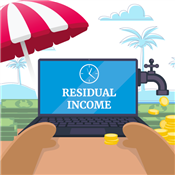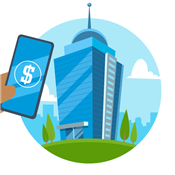How to Become a Real Estate Investor
Real estate investing is possible for everyone now with just $500. Read on to learn how beginners can invest in crowdfunded real estate and make money.
 |
| © CreditDonkey |
Investing in real estate has never been easier or cheaper.
These days, anyone can invest in real estate with just a little bit of money. It's no longer just for the rich.
In the past, you would have to save a lot of money to purchase a property. But now there are tons of new options to invest from just your laptop.
Read on to learn about the different ways you can become a real estate investor.
Why Invest in Real Estate
Investing in real estate is a great way to generate cash flow, diversify your portfolio, and see excellent returns over long term. Traditionally, real estate has higher returns compared to the stock market.
Real estate also provides a hedge against the volatility of the stock market. It's a physical asset you own that will always have value (unlike stocks, which can crash suddenly). Rental prices and property values will always appreciate over time.
2 Basic Strategies: Passive vs. Traditional
There are 2 basic strategies for real estate investing:
- Passive
With passive real estate investing, you can invest in properties without doing any of the work yourself. You're not involved in the acquiring, fixing, or daily operations of the property.This is usually done through real estate crowdfunding or purchasing shares of REITs.
- Traditional (or active)
Traditional real estate investing means purchasing a property. You can make money by renting it out or selling it for a profit when the property goes up in value. You're responsible for actively managing it.
Read on to learn how each one works in more detail.
Passive Real Estate Investing
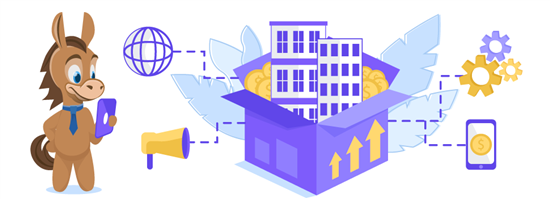 |
| © CreditDonkey |
Passive real estate investing is a great option for beginners. You don't need a lot of money or knowledge. Here are two ways you can invest passively.
Buying REITS
Real Estate Investment Trusts (REITs) are companies that own and operate real estate assets, such as residential and commercial rentals. Since properties typically appreciate in value, REITs can generate substantial returns over time.
You can invest in them just like a stock (such as the Vanguard REIT). All you need is a brokerage account. You can buy shares for free on a free stock trading app.
When you invest in a REIT, you are actually investing in the company (not directly in the properties). You get individual shares within the trusts. You can buy and sell shares of REITs on the open stock market at any time.
All REITs are required to pay at least 90% of their income to shareholders, and many choose to pay 100%. Returns are often paid out either monthly or quarterly from the collected rental income.
Real Estate CrowdFunding
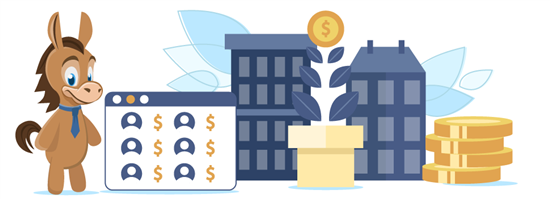 |
| © CreditDonkey |
The second passive investing option is real estate crowdfunding. This is when you pool funds with lots of other investors to purchase properties together.
There are many real estate crowdfunding platforms that let you do this, with a little as just $10 or $500. The platform takes care of all the acquiring and managing of the properties. You usually don't get to pick which properties to invest in.
You'll receive returns through either dividends or when the property is sold off. These kinds of investments are usually at least a 5-year term. You can't just sell at any time.
Invest in Real Estate with $10+
- Only $10 minimum investment
- Get a diversified portfolio of real estate projects across the US
- Open to all investors
Pros & Cons of Passive Real Estate Investing
PROS:
- Completely hands-off
- Don't need a lot of capital to start
- Great for beginners
- Diversify across many real estate projects
- No credit checks or loan eligibility
CONS:
- Can't pick your properties
- Trusting others to properly manage
- Generally 5 year investment
Passive Real Estate Investing Platforms
Here are some of the top real estate investing platforms.
Fundrise:
Fundrise is open to all investors, regardless of income. You just need $10 to invest in the diversified portfolio of real estate projects that Fundrise acquires and manages.
DiversyFund:
DiversyFund is open to all investors and only requires $500 to start. It focuses on multi-family buildings to collect rental income. It has no management fees.
RealtyMogul
RealtyMogul REITs offers two REITS for non-accredited investors. The minimum investment is $5,000. For accredited investors, you also have the option to invest in private placements.
 |  | ||
| Visit Site | Learn More | Learn More | |
Fundrise | DiversyFund | RealtyMogul | |
|---|---|---|---|
Invest in Real Estate with $10+ - | Earn Passive Income with Real Estate - | ||
Summary | |||
offers real estate investment opportunities to both accredited and non-accredited investors. Accredited investors have access to private placements, while everyone is eligible to invest in their REIT offerings with a minimum of $5,000. | |||
Benefits and Features | |||
| Annual Fee | $0. No management fees and no commissions | ||
| Minimum Deposit | $5,000 for REITs; $25,000 for individual deals | ||
| Phone Support | |||
| Live Chat Support | |||
| Email Support | |||
| Investment Types | Commercial, single family, multi-family, industrial | Commercial, multifamily, office, industrial | |
| Accredited Investor Requirements | REIT offerings open to everyone; Accredited investors have access to private placements | ||
| Dividends | Choose quarterly payouts or auto reinvest | Monthly or quarterly payouts or auto reinvest | |
| Investment Period | 5+ years (with opportunities to liquidate on a quarterly basis) | ||
| Visit Site | Learn More | Learn More | |
Traditional Real Estate Investing
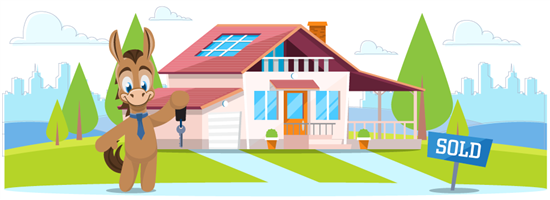 |
| © CreditDonkey |
The most basic home investment is buying and maintaining a house. Ideally, as the home is taken care of, it will appreciate in value and eventually sell for more than you paid.
Read on for different ways to make a profit with traditional real estate investing.
Rent Out a House
Being a landlord is the most popular way to generate continuous cash flow. You buy a house and find tenants. This means listing the home online, showing potential renters the space, conducting credit checks, and drafting and processing rental documents.
Once you begin collecting monthly rental payments, you can use it to pay for the home's mortgage and other fees.
However, this isn't so easy. It takes a lot of research to find a house in a good location where you can rent it out for a good price. You'll also be responsible for solving any maintenance issues, whether you hire an outside contractor or fix them yourself.
Fix and Flip
This means buying a home, fixing it up to increase the value, and then quickly reselling it. This is a riskier move, but could be very rewarding.
In order to make a profit, the final sell amount must be more than the cost to buy, renovate, and hold the house until it sells. It can take months to fully renovate a house so that it is ready to sell.
It's easy to lose money when trying to flip homes. If the home is in an "undesirable" area or if the market significantly cools down, the investment can actually end up costing more than you may make. Be patient and wait for a property within your means.
Buy and Hold
Finally, you can always just wait for your house to naturally appreciate in value, and then selling it.
Of course this is a very long term investment. You can always rent out a spare room to earn some monthly cash flow.
How Much Capital Do You Need?
 |
| © CreditDonkey |
To invest in a property, you need to prepare a significant amount of capital. You will need money for:
- Down payment and closing costs: You'll need to put down at least 20% down payment. The more you can put down, the more profit you'll earn each month from the rental income. And don't forget that closing costs are typically 5%.
- Other property fees: You'll be responsible for things like property tax, homeowner's association fees, insurance, etc.
- Repairs and renovations: Cheaper properties usually mean that you'll need to make some repairs before you can either rent it out or flip it. You also need to set aside some cushion for any emergency issues or ongoing maintenance.
- Vacancy cushion: If your house doesn't immediately rent or sell, you'll need to cover the costs while it's sitting empty.
Pros & Cons of Traditional Real Estate Investing
PROS:
- Appreciates over time
- You have control over your investment
- Rent payments generate passive cash flow
- Tax benefits
CONS:
- Responsible for managing it
- Need large amount of capital to purchase property
- Takes time to learn
- Must pay out of pocket if it doesn't rent
- Need to have money set aside for repairs
Easy Way to Purchase Property
Usually, buying an investment property means doing market research, getting a loan, physically looking at properties, arranging for inspection, and finally closing. Then you'll have to find tenants.
Roofstock is an online marketplace where you can easily buy properties online, without ever leaving your home. It focuses on single-family homes already with tenants, so you can immediately start earning rental income.
Roofstock does all the due diligence for you. Its properties have already been through a strict evaluation process and passed inspection.
The platform also connects you with lending partners and property management services. You can be completely hands-off.
Risks of Investing in Real Estate
Even though real estate is traditionally less volatile, all investments have risks to be aware of. Here are some risks to consider before making your investment.
Choosing a bad property
This could be a house with too many issues or in a poor location. To avoid this, it's super important to do your due diligence.
Research the neighborhood for its population and job growth, school districts, rent values, etc. And hire professionals for a thorough inspection of the house.
Declining market
You could pay too much if you buy your house at the peak of the market. Your home's value could decrease in the next few years, but don't freak out just yet. Plan for a long term investment. Historically, real estate has always bounced back.
Tenant troubles
Being a landlord is not always easy. You could have tenants that destroy your house or don't pay rent. You can reduce this risk by performing thorough credit and background checks of any renters.
Vacant property
Depending on the rental demand of your area, you could buy a house and no one rents it for a while. Or it can sit empty in between renters. You'll be losing money in order to cover the costs during these times.
Bottom Line
Whether you're looking to invest just $500 or become a landlord with multiple rental properties, you too can invest in real estate.
The most common methods are:
- Purchasing shares of REITs
- Crowdfunding real estate
- Becoming a landlord
Investing in real estate can be a great way to earn returns over the long term and build wealth. But before you invest, make sure to do your research and due diligence in order to reduce risks. Consider finding a local real estate investor association.
Write to Anna Johnson at feedback@creditdonkey.com. Follow us on Twitter and Facebook for our latest posts.
Note: This website is made possible through financial relationships with some of the products and services mentioned on this site. We may receive compensation if you shop through links in our content. You do not have to use our links, but you help support CreditDonkey if you do.
Fundrise, LLC ("Fundrise") compensates CreditDonkey Inc for new leads. CreditDonkey Inc is not an investment client of Fundrise.
|
|
|

